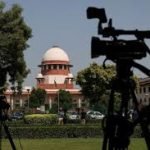The case concerns Pinky Meena, who holds a Bachelor of Arts, Bachelor of Education, Bachelor of Laws, and Masters in Law degrees. She served as a Teacher Grade-II in the Education Department of Rajasthan from 2014. In 2017, she applied for the post of Civil Judge and Judicial Magistrate, was selected, and commenced training as a trainee RJS on 6th March 2019, completing it successfully by 7th March 2020.
However, her service was discontinued following a show cause notice issued on 17th February 2020, and a discharge order dated 29th May 2020…. The allegations against her included:
- Fraudulently obtaining simultaneous LLB and B.Ed degrees in the same year, and an LL.M. degree while working as a teacher, without proper attendance.
- Concealing her employment as a Teacher in the checklist submitted for the RJS interview, despite submitting her resignation on 25th October 2018 (prior to the interview on 2nd November 2018)….
- Failing to obtain a ‘No Objection Certificate’ (NOC) from her employer for appearing in the RJS examination.
- Concealing information about her resignation on medical grounds.
The High Court of Rajasthan had dismissed her writ petition and review petition, upholding the discharge.
Law Involved The judgment primarily involved:
- Rajasthan Civil Services (Classification, Control and Appeal) Rules, 1958: Specifically, Rule 16, under which the initial show cause notice was issued.
- Rajasthan Judicial Service Rules, 2010: Particularly Rules 44 (Probation), 45 (Confirmation), and 46 (Unsatisfactory progress during probation and extension), which govern the appointment and termination of Civil Judges…. Also, Rule 14 (“Employment by irregular or improper means”), which deals with suppression of material information.
- Principles of Natural Justice and Fair Play: The appellant argued that the inquiry conducted lacked due process, including the absence of a Presenting Officer or Inquiry Officer and no effective hearing, violating Article 311 of the Constitution.
- Article 311 of the Constitution of India: Pertains to dismissal, removal, or reduction in rank of persons employed in civil capacities under the Union or a State.
- Case Law: Shamsher Singh Vs. State of Punjab 1974, Raj Kumar Vs. Union of India (1968), Rajasthan Rajya Vidyut Prasaran Nigam Ltd. Vs. Anil Kanwariya (2021), and Jaswantsingh Pratapsingh Jadeja vs. Rajkot Municipal Corporation, (2007), were cited to establish principles of arbitrary discharge and the requirement of substantive inquiry for punitive termination.
Reasoning: The Supreme Court scrutinised the nature of the allegations and the process followed.
- The Court found that the appellant’s late submission of resignation (25.10.2018 vs. interview 02.11.2018) and failure to disclose past government service in the checklist was not a “material irregularity or a serious misconduct” that warranted discharge…. The Court viewed this as a “minor irregularity (omission)”.
- The Court observed that the appellant had successfully completed her training without any blemish.
- It was noted that the appellant had been suffering from lymphadenopathy tuberculosis since March 2018 and had been admitted to hospital, and the suppression of this medical information was not a “criminal antecedent”.
- Crucially, the Court distinguished between a simpliciter termination (termination during probation without stigma) and a punitive termination. The discharge order dated 29th May 2020 contained allegations and was based on an assessment of her work and conduct, rendering it “stigmatic and punitive”.
- For a punitive termination, it is mandatory to provide an opportunity of being heard and conduct a proper inquiry, which was not afforded to the appellant. The inquiry against her was held “without participation” of the appellant and without appointing a Presenting Officer or Inquiry Officer. This was a clear violation of principles of natural justice and fair play.
- The Court emphasised that termination of a probationer cannot be arbitrary or discriminatory.
- The judgment also highlighted the importance of advancing women’s greater participation in the judiciary and acknowledged the appellant’s perseverance in fighting societal stigmas and achieving higher education.
Holding: The Supreme Court allowed the appeal, thereby setting aside the order of the High Court. The Court held that:
- The show cause notice dated 17th February 2020 and the discharge order dated 29th May 2020 are quashed.
- The appellant shall be entitled to reinstatement in service forthwith with all consequential benefits, including fixation of seniority as per the merit list in the examination in question and notional fixation of pay.
- However, the appellant shall not be entitled to back wages.
- The respondent is directed to treat the appellant as having successfully completed her probation period and as a confirmed employee.
Pinky Meena V. High Court Of Judicature For Rajasthan At Jodhpur And Another
Supreme Court: 2025 INSC 756: (DoJ 22-05-2025)






